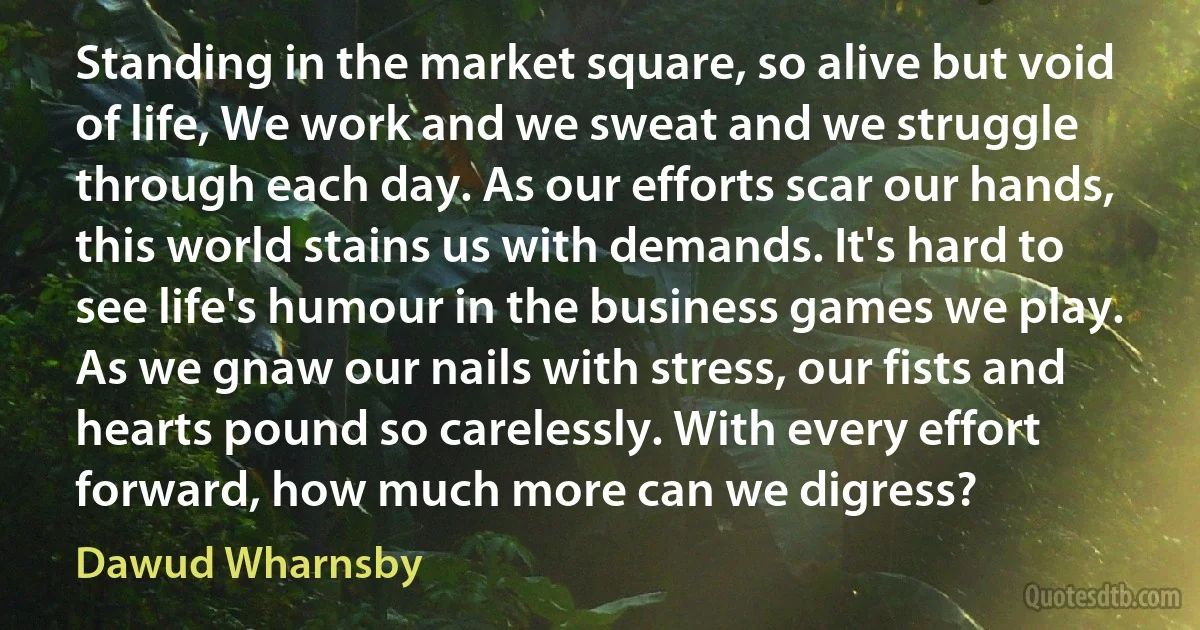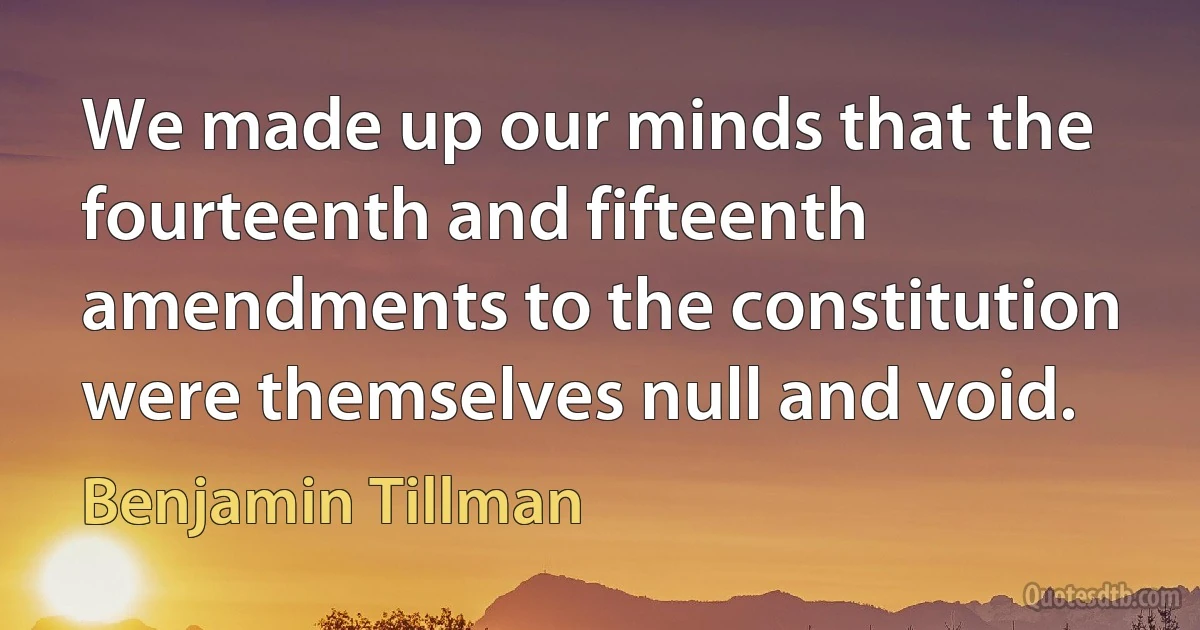Void Quotes - page 16
Like most inventors, Pound did not create out of the void. The "Image" he took from T.E. Hulme's table talk. The "ism" was suggested to him by the notes on contemporary French poetry which I wrote for Harold Monro's Poetry Review. The collacation of 'image' and 'ism' came to Pound after I had told him about Divoire's essays on stratégie littéraire.

F. S. Flint
If you have seen a man misbehave once, do not from thence conclude him a fool; if you find he has been in a mistake in one particular, do not at once conclude him void of understanding : by that way of judging, you can entertain a favourable opinion of no man upon earth, nor even of yourself.

James Burgh
Parmenides believed that all Being is what he called the One, and denied absolutely the possibility of change. He believed that the cosmos is full (i. e., no void), uncreated, eternal, indestructible, unchangeable, immobile sphere of being, and all sensory evidence to the contrary is illusory. One Parmenidean fragment stated, "Either a thing is or it is not," meaning that creation and destruction is impossible.

John Freely
The past slips from our grasp. It leaves us only scattered things. The bond that united them eludes us. Our imagination usually fills in the void by making use of preconceived theories...Archaeology, then, does not supply us with certitudes, but rather with vague hypotheses. And in the shade of these hypotheses some artists are content to dream, considering them less as scientific facts than as sources of inspiration.

Igor Stravinsky
Yes, I know, we are merely empty forms of matter, but we are indeed sublime in having invented God and our soul. So sublime, my friend, that I want to gaze upon matter, fully conscious that it exists, and yet launching itself madly into Dream, despite its knowledge that Dream has no existence, extolling the Soul and all the divine impressions of that kind which have collected within us from the beginning of time and proclaiming, in the face of the Void which is truth, these glorious lies!

Stéphane Mallarmé
The Beatific Vision, Sat Chit Ananda, Being-Awareness-Bliss-for the first time I understood, not on the verbal level, not by inchoate hints or at a distance, but precisely and completely what those prodigious syllables referred to. And then I remembered a passage I had read in one of Suzuki's essays. "What is the Dharma-Body of the Buddha?” ('"the Dharma-Body of the Buddha” is another way of saying Mind, Suchness, the Void, the Godhead.) The question is asked in a Zen monastery by an earnest and bewildered novice. And with the prompt irrelevance of one of the Marx Brothers, the Master answers, "The hedge at the bottom of the garden.” "And the man who realizes this truth,” the novice dubiously inquires, "what, may I ask, is he?”.

Aldous Huxley
We in Ghana, are committed to the building of an industrialized socialist society. We cannot afford to sit still and be mere passive onlookers. We must ourselves take part in the pursuit of scientific and technological research as a means of providing the basis for our socialist society, Socialism without science is void. ...

Kwame Nkrumah
Greek tragedy met her death in a different way from all the older sister arts: she died tragically by her own hand, after irresolvable conflicts, while the others died happy and peaceful at an advanced age. If a painless death, leaving behind beautiful progeny, is the sign of a happy natural state, then the endings of the other arts show us the example of just such a happy natural state: they sink slowly, and with their dying eyes they behold their fairer offspring, who lift up their heads in bold impatience. The death of Greek tragedy, on the other hand, left a great void whose effects were felt profoundly, far and wide; as once Greek sailors in Tiberius' time heard the distressing cry 'the god Pan is dead' issuing from a lonely island, now, throughout the Hellenic world, this cry resounded like an agonized lament: 'Tragedy is dead! Poetry itself died with it! Away, away with you, puny, stunted imitators! Away with you to Hades, and eat your fill of the old masters' crumbs!'

Friedrich Nietzsche
Apart from these three acts, Mr. President, the Court further declared VOID "the use of unprogrammed funds despite the absence of a certification by the National Treasurer that the revenue collections exceeded the revenue targets for non-compliance with the conditions provided in the relevant GAA.”.

Francis Escudero
It seemed clear to me that life and the world somehow depended upon me now. I may almost say that the world now seemed created for me alone: if I shot myself the world would cease to be at least for me. I say nothing of its being likely that nothing will exist for anyone when I am gone, and that as soon as my consciousness is extinguished the whole world will vanish too and become void like a phantom, as a mere appurtenance of my consciousness, for possibly all this world and all these people are only me myself.

Fyodor Dostoyevsky
There never did, there never will, and there never can, exist a Parliament, or any description of men, or any generation of men, in any country, possessed of the right or the power of binding and controlling posterity to the "end of time," or of commanding for ever how the world shall be governed, or who shall govern it; and therefore all such clauses, acts or declarations by which the makers of them attempt to do what they have neither the right nor the power to do, nor the power to execute, are in themselves null and void. Every age and generation must be as free to act for itself in all cases as the age and generations which preceded it. The vanity and presumption of governing beyond the grave is the most ridiculous and insolent of all tyrannies. Man has no property in man; neither has any generation a property in the generations which are to follow.

Thomas Paine



